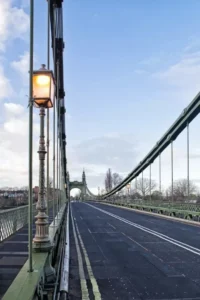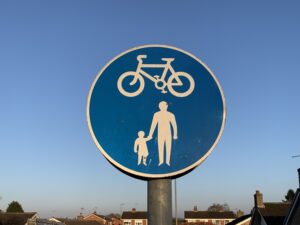Over 580 passenger kilometres were travelled in Great Britain in 2020, a fall of 33% from 2019 after long-term growth since 1960. This meant people made 739 trips on average across private and public transport in 2020 in England, down 22% from 2019 also.
The figures form part of the latest transport statistics from the Department of Transport (DfT).
This release presents an annual summary of statistics for passenger transport, freight transport and the environment, mostly relating to the calendar year 2020. This condensed set of highlights is complemented by other Department for Transport (DfT) releases presenting more detailed and recent statistics.
They also showed that 69% of public transport journeys in Great Britain were made on local buses in the financial year ending 2021.
In the financial year ending 2021 in Great Britain, there were:
- 2.5 billion passenger journeys made on public transport vehicles, down 68% on the financial year ending 2020
- 1.7 billion local bus passenger journeys, down 68% on the financial year ending 2020, and down 86% from 1960
- 0.7 billion journeys made by rail, down 78% on the financial year ending 2020, and down 60% from 1960
- of which 0.4 billion of journeys were made on the National Rail, down 78% on the financial year ending 2020
- 0.1 billion passenger journeys made on light rail and tram systems, down 69% on the financial year ending 2020
This release includes an overview of daily domestic transport usage from 1 March 2020 to the end of the year. The DfT said that most of the statistics in this release cover the period when national and regional measures were introduced to prevent and reduce the global spread of coronavirus (COVID-19). Transport trends have been affected by these measures, which can be seen in the official annual statistics, and daily transport usage indicators in this report.
In Great Britain, since the financial year ending 1986 (chart 3):
- journeys taken on buses outside London continued their long-term decline
- the decline was relatively steady in years prior to the financial year ending 2021, where there was a 64% fall in journeys
- passenger journeys on London buses, National Rail and London and Glasgow underground trains remained stable until the financial year ending 1994, before gradually increasing until the financial year ending 2020
- the number of journeys across all modes sharply fell in the financial year ending 2021
- journeys on light railway systems and trams saw a gradual long-term increase, before declining sharply in the financial year ending 2021
Just under a quarter (23%) of all trips in England were for leisure purposes.
Other purposes of travelling in 2020 were:
- shopping, accounting for 19% of all trips
- commuting and education, each accounting for 12%
- personal business and other escort, each accounting for 8%
- business, accounting for 2%
- other purposes, including just walking, accounting for 15% of all trips
Most modes of travel are used for a mixture of purposes, however, in 2020:
- almost a half (46%) of all trips by rail are for either commuting or business purposes
Commuting and business trips saw the greatest change in the proportion of across modes. Compared to 2019:
- trips done by car and van saw the greatest increase in its proportion in 2020
- commuting increased 9 percentage points (pp) to 70%
- business trips fell 12pp to 84%
- trips on rail saw the greatest fall in its proportion in 2020
- commuting fell 5pp to 7%
- business trips fell 6pp to 4%
The stats also revealed that transport remains the largest emitting sector of greenhouse gases in 2019. Approximately 122 million tonnes of Co2 equivalent was produced by the domestic transport sector in 2019, although that was down 2% from 2018.
The full stats can be viewed at: Transport Statistics Great Britain: 2021 – GOV.UK (www.gov.uk)
























